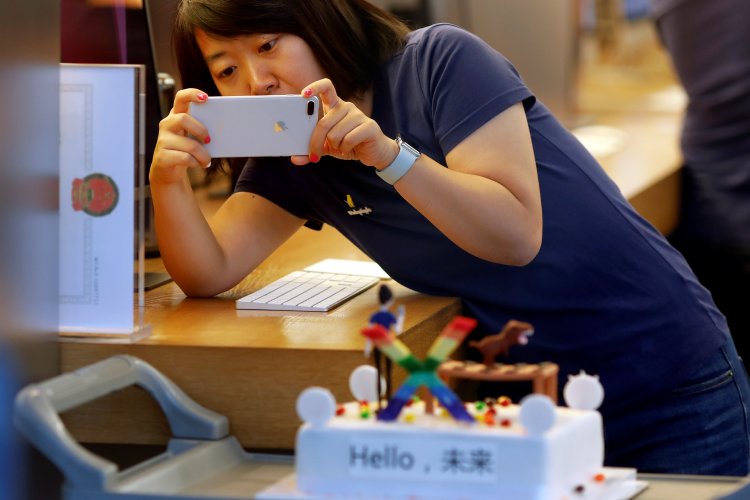Although the legal battle between Apple and Qualcomm took an unexpectedly negative turn on Monday when China ordered a ban on multiple Qualcomm patent-infringing iPhone models, Apple is reportedly working on two strategies to skirt the ban — one for iPhone hardware, and one for iOS software.
On the hardware side, Apple is considering increasing production at Pegatron, which the Nikkei Asian Review reports is the only iPhone contract manufacturer that paid Qualcomm a licensing fee for the disputed technologies. As a licensee, Pegatron would be exempt from China’s ban, enabling it to supply iPhone models for sale within the country.
Of the currently banned iPhones, Apple is only actively marketing four: the iPhone 7, iPhone 7 Plus, iPhone 8, and iPhone 8 Plus. Older iPhone 6S models subject to the ban were already discontinued, along with the newer iPhone X, though that model is said to have resumed production to supply unspecified price-sensitive markets. Even so, unsold inventory of each model could still be circulating throughout the region and country.
Apple is also pursuing a faster software-based workaround for the Chinese ban. Shortly after filing a request for reconsideration with the Chinese court, Apple told Reuters that it will release a software update for iPhones in China early next week, changing the photo and app management functionality covered by Qualcomm’s patents. While maintaining that it believes it is in compliance with the court’s ruling, Apple said that the update will “address any possible concern about our compliance with the order.”
June 5th: The AI Audit in NYC
Join us next week in NYC to engage with top executive leaders, delving into strategies for auditing AI models to ensure fairness, optimal performance, and ethical compliance across diverse organizations. Secure your attendance for this exclusive invite-only event.
The risks of an iPhone ban in China are apparently higher for Apple than was widely realized. In its request to the Chinese court, Apple explicitly stated that the country’s ban would force it to either settle with Qualcomm, leading to higher fees for multiple companies’ smartphones, or “suffer truly irreparable harm,” along with other companies, consumers, and the government. The damage cited includes the loss of manufacturing jobs, popular products, and tax revenues. In total, Apple claimed that its own ban-related losses would amount to millions of dollars per day.
For its part, Qualcomm has repeatedly said that it hopes to settle the dispute with Apple, though in recent weeks that sentiment has apparently turned from optimism over a mutually acceptable agreement to a greater expectation of trial-based resolutions. With well over a billion dollars now at stake, the companies are currently fighting a variety of battles in courts around the world, all circling the issue of whether smartphone modem and processor maker Qualcomm is overcharging for its portfolio of patents — fees Apple initially agreed to pay, then sought to cut.

